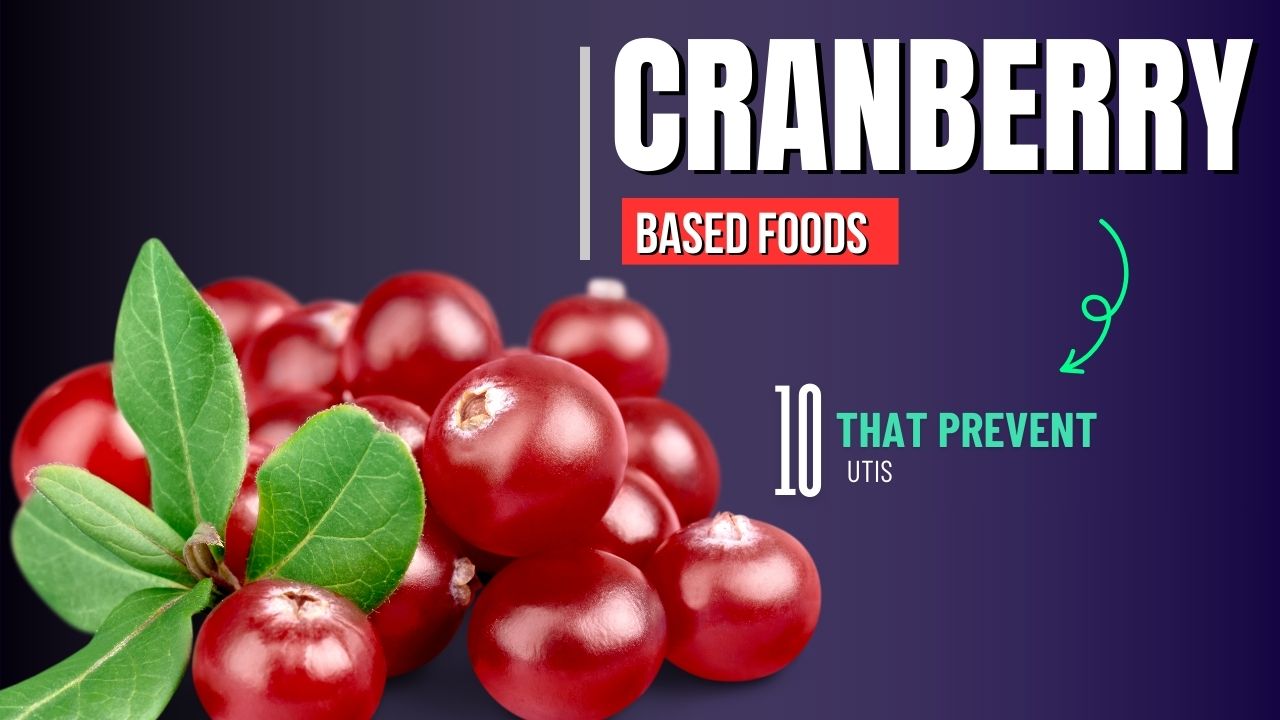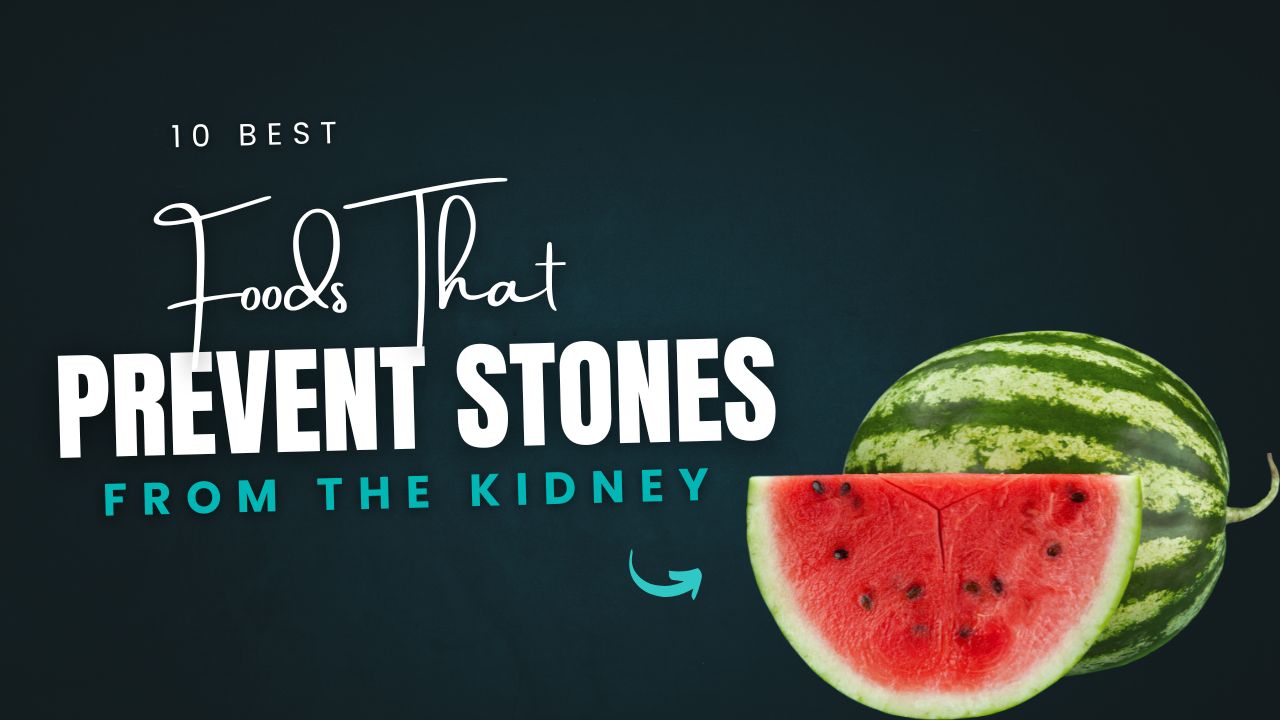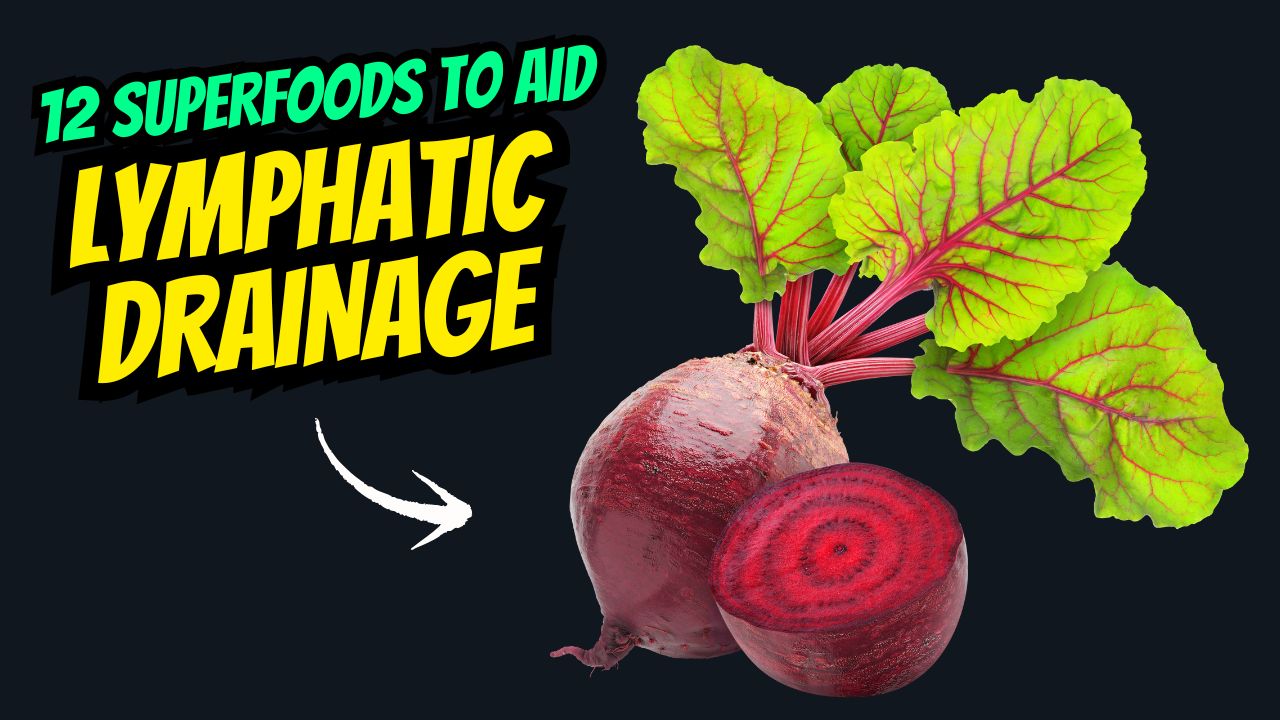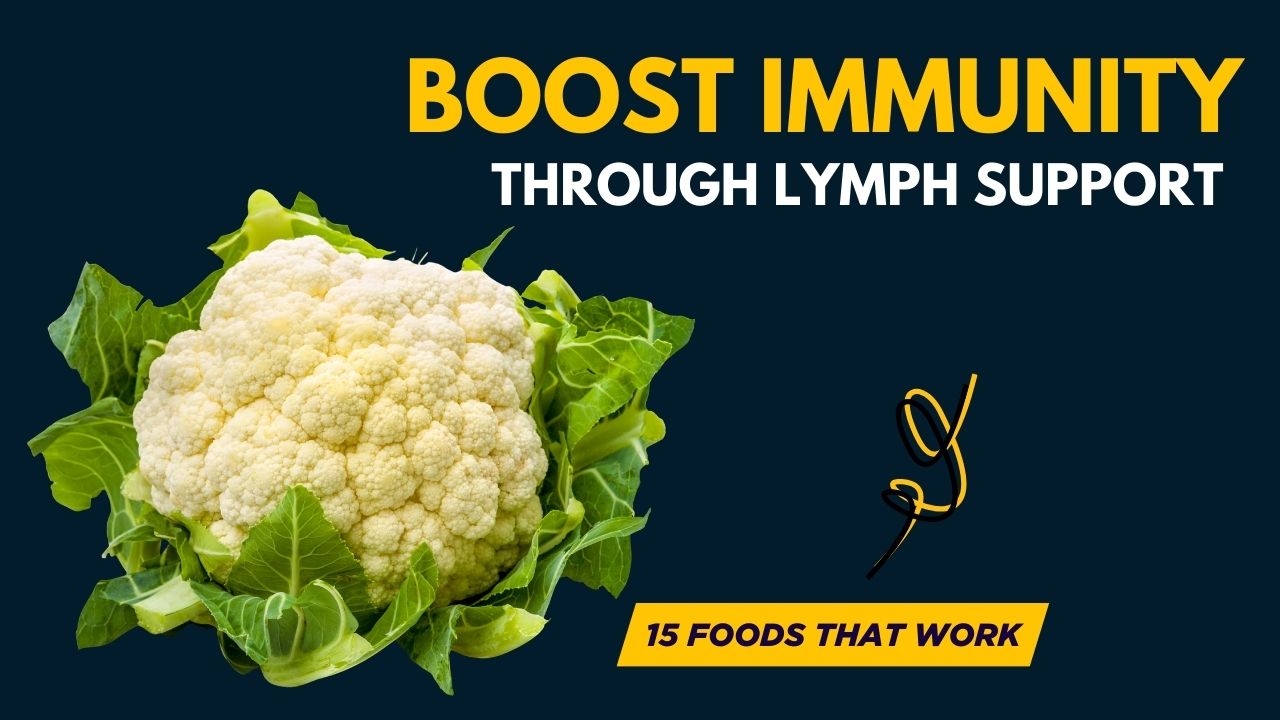Did you know that your lymphatic system is just as important as your circulatory system—but it doesn’t have a “pump” like the heart?
Instead, it depends on your diet, hydration, and lifestyle to keep things flowing. When it becomes sluggish, toxins can build up, leading to fatigue, puffiness, frequent colds, and even long-term inflammation.
The good news? Certain foods act like natural cleansers for your lymphatic system. They help reduce inflammation, improve circulation, and support detoxification.
In this post, we’ll explore 15 powerful anti-inflammatory foods that can keep your lymph system healthy and working at its best.
Here’s what you’ll discover:
- Which everyday foods can boost lymph flow and reduce inflammation.
- The best ways to eat them for maximum benefit.
- Who should include them in their diet (and who might want to avoid them).
- Storage, buying tips, and possible side effects to keep in mind.
Let’s dive in!

Table of Contents

15 Best Anti-Inflammatory Foods To Eat
1. Turmeric
Turmeric is often called nature’s “golden healer” because of its active compound curcumin, which has strong anti-inflammatory properties. It supports lymphatic detoxification and helps your body fight oxidative stress.
Best Ways to Eat or Use It
- Add turmeric powder to soups, curries, or golden milk.
- Fresh turmeric root can be grated into smoothies or teas.
- Pair with black pepper to boost absorption.
Who Should Eat / Avoid
- Good for: people with chronic inflammation, joint pain, or low immunity.
- Avoid/Limit if: you are on blood thinners or have gallbladder issues.
Storage & Buying Tips
- Buy fresh roots with firm skin, not shriveled.
- Store powder in an airtight container, away from light and heat.
Do’s & Don’ts
✅ Do: pair with black pepper or healthy fat (like coconut oil).
❌ Don’t: rely on turmeric supplements without consulting a doctor.
Possible Side Effects
Too much turmeric may cause stomach upset in some individuals.
2. Leafy Greens (Spinach, Kale, Swiss Chard)
Leafy greens are rich in chlorophyll, which helps remove toxins from tissues and supports lymphatic cleansing.
Best Ways to Eat or Use It
- Use in salads, smoothies, or lightly steamed dishes.
- Combine with citrus for better iron absorption.
Who Should Eat / Avoid
- Good for: athletes, women with iron deficiency, detox support.
- Avoid/Limit if: you have kidney stones (due to oxalates).
Storage & Buying Tips
- Buy crisp, vibrant leaves.
- Store in a breathable produce bag in the refrigerator.
Do’s & Don’ts
✅ Do: wash thoroughly before eating.
❌ Don’t: overcook, as nutrients get destroyed.
Possible Side Effects
Excessive consumption may interfere with calcium absorption.
3. Berries (Blueberries, Strawberries, Raspberries)
Berries are antioxidant powerhouses that fight free radicals and protect lymphatic vessels from damage.
Best Ways to Eat or Use It
- Add to oatmeal, yogurt, or smoothies.
- Eat fresh as a snack.
Who Should Eat / Avoid
- Good for: heart health, skin glow, immune support.
- Avoid/Limit if: you’re sensitive to salicylates (in rare cases).
Storage & Buying Tips
- Choose firm, bright-colored berries.
- Store unwashed in the fridge and wash before eating.
Do’s & Don’ts
✅ Do: freeze extra berries for smoothies.
❌ Don’t: wash before storing (causes mold).
Possible Side Effects
Overeating may cause digestive discomfort in some people.
4. Garlic
Garlic is a natural immune booster and helps reduce inflammation in the lymphatic system.
Best Ways to Eat or Use It
- Eat raw for maximum allicin benefits.
- Add crushed garlic to stir-fries, soups, or roasted veggies.
Who Should Eat / Avoid
- Good for: people with high cholesterol or frequent colds.
- Avoid/Limit if: you have bleeding disorders or are about to undergo surgery.
Storage & Buying Tips
- Buy firm bulbs with dry outer skin.
- Store in a cool, dry place, not in the fridge.
Do’s & Don’ts
✅ Do: crush and let sit for 10 minutes before cooking to activate compounds.
❌ Don’t: microwave, as it kills beneficial compounds.
Possible Side Effects
May cause bad breath or heartburn in sensitive people.
5. Ginger
Ginger improves circulation, reduces inflammation, and boosts lymphatic drainage.
Best Ways to Eat or Use It
- Brew ginger tea.
- Add grated ginger to stir-fries, smoothies, or baked dishes.
Who Should Eat / Avoid
- Good for: digestive health, nausea relief, anti-inflammatory support.
- Avoid/Limit if: you’re pregnant in high doses or taking blood thinners.
Storage & Buying Tips
- Choose firm, smooth roots.
- Store unpeeled in the fridge for up to 3 weeks.
Do’s & Don’ts
✅ Do: use fresh for stronger benefits.
❌ Don’t: overconsume, as it may thin blood.
Possible Side Effects
May cause mild stomach upset if consumed in excess.
6. Citrus Fruits (Lemons, Oranges, Grapefruits)
Citrus fruits are rich in vitamin C, which supports immune health and strengthens lymphatic vessels.
Best Ways to Eat or Use It
- Drink lemon water in the morning.
- Add citrus to salads or smoothies.
Who Should Eat / Avoid
- Good for: boosting immunity, detox support, hydration.
- Avoid/Limit if: you have acid reflux or citrus allergies.
Storage & Buying Tips
- Choose heavy fruits with thin skin.
- Store in a cool, dry place or refrigerate.
Do’s & Don’ts
✅ Do: use zest for extra nutrients.
❌ Don’t: consume citrus juice with high sugar content.
Possible Side Effects
Too much citrus can erode tooth enamel.
7. Green Tea
Green tea is packed with catechins, which help reduce inflammation and improve lymphatic flow.
Best Ways to Eat or Use It
- Drink freshly brewed green tea.
- Add lemon for better antioxidant absorption.
Who Should Eat / Avoid
- Good for: weight-loss seekers, detox enthusiasts, energy boost.
- Avoid/Limit if: you’re sensitive to caffeine.
Storage & Buying Tips
- Store in airtight containers away from light.
- Choose high-quality loose-leaf tea for better nutrients.
Do’s & Don’ts
✅ Do: drink 2–3 cups daily.
❌ Don’t: add too much sugar.
Possible Side Effects
Excess caffeine may cause insomnia or jitteriness.
8. Fatty Fish (Salmon, Sardines, Mackerel)
Omega-3 fatty acids in fish reduce inflammation and support healthy circulation in the lymphatic system.
Best Ways to Eat or Use It
- Grill, bake, or steam instead of frying.
- Pair with leafy greens for extra nutrients.
Who Should Eat / Avoid
- Good for: heart health, athletes, joint support.
- Avoid/Limit if: you have seafood allergies.
Storage & Buying Tips
- Buy fresh fish with a mild scent and clear eyes.
- Store in the coldest part of your fridge.
Do’s & Don’ts
✅ Do: choose wild-caught fish when possible.
❌ Don’t: eat too much due to mercury risk.
Possible Side Effects
Excessive intake may increase mercury exposure.
9. Beets
Beets improve blood flow and detoxification, making them excellent for lymph health.
Best Ways to Eat or Use It
- Roast, juice, or shred into salads.
- Pair with citrus for better flavor.
Who Should Eat / Avoid
- Good for: athletes, detox cleanses, circulation support.
- Avoid/Limit if: you’re prone to kidney stones.
Storage & Buying Tips
- Select firm beets with fresh greens.
- Store in the fridge for up to 2 weeks.
Do’s & Don’ts
✅ Do: eat both root and greens.
❌ Don’t: boil for too long.
Possible Side Effects
May cause pink urine (harmless).
10. Avocados
Avocados are rich in healthy fats that support nutrient absorption and fight inflammation.
Best Ways to Eat or Use It
- Add to salads, smoothies, or whole-grain toast.
- Use avocado oil for cooking.
Who Should Eat / Avoid
- Good for: heart health, athletes, skin glow.
- Avoid/Limit if: you’re on a low-fat diet or allergic.
Storage & Buying Tips
- Buy slightly soft avocados for immediate use.
- Store unripe avocados at room temperature.
Do’s & Don’ts
✅ Do: squeeze lemon to prevent browning.
❌ Don’t: refrigerate unripe avocados.
Possible Side Effects
Overeating may lead to weight gain due to high calorie content.
11. Nuts & Seeds (Almonds, Walnuts, Flaxseeds, Chia Seeds)
Packed with healthy fats and fiber, nuts and seeds reduce inflammation and improve nutrient absorption.
Best Ways to Eat or Use It
- Snack on raw nuts.
- Add seeds to smoothies, salads, or yogurt.
Who Should Eat / Avoid
- Good for: brain health, weight management, athletes.
- Avoid/Limit if: you have nut allergies.
Storage & Buying Tips
- Buy unsalted, raw, or lightly roasted.
- Store in airtight containers to prevent rancidity.
Do’s & Don’ts
✅ Do: soak nuts for better digestion.
❌ Don’t: eat flavored ones with added sugar.
Possible Side Effects
Overeating may cause digestive issues.
12. Broccoli
Broccoli supports detox enzymes in the liver, which helps lymphatic health.
Best Ways to Eat or Use It
- Steam lightly or roast with olive oil.
- Add to stir-fries or soups.
Who Should Eat / Avoid
- Good for: weight-loss seekers, detox cleanses.
- Avoid/Limit if: you have thyroid issues (limit raw).
Storage & Buying Tips
- Pick firm florets with deep green color.
- Store in fridge, unwashed, until ready to use.
Do’s & Don’ts
✅ Do: steam lightly.
❌ Don’t: overboil.
Possible Side Effects
May cause gas in some people.
13. Apples
Rich in quercetin and pectin, apples help flush toxins and improve lymphatic circulation.
Best Ways to Eat or Use It
- Eat raw with skin on.
- Add slices to salads or oatmeal.
Who Should Eat / Avoid
- Good for: digestive health, weight loss, detox support.
- Avoid/Limit if: you’re sensitive to fructose.
Storage & Buying Tips
- Choose firm apples without bruises.
- Store in a cool, dry place or fridge.
Do’s & Don’ts
✅ Do: eat with skin for fiber.
❌ Don’t: peel unless necessary.
Possible Side Effects
Too many may cause bloating in sensitive people.
14. Cucumbers
High in water content, cucumbers hydrate the body and support lymphatic flow.
Best Ways to Eat or Use It
- Slice into salads.
- Infuse water with cucumber slices.
Who Should Eat / Avoid
- Good for: hydration, detox, weight loss.
- Avoid/Limit if: you have digestive sensitivities.
Storage & Buying Tips
- Buy firm cucumbers with dark skin.
- Store in fridge wrapped in paper towel.
Do’s & Don’ts
✅ Do: eat raw for hydration.
❌ Don’t: leave sliced cucumbers out too long.
Possible Side Effects
May cause burping due to cucurbitacins.
15. Olive Oil
Extra virgin olive oil reduces inflammation and supports nutrient absorption in the lymphatic system.
Best Ways to Eat or Use It
- Drizzle over salads or roasted vegetables.
- Use as a dip with whole-grain bread.
Who Should Eat / Avoid
- Good for: heart health, Mediterranean diet followers.
- Avoid/Limit if: you need a low-fat diet.
Storage & Buying Tips
- Choose extra virgin, cold-pressed olive oil.
- Store in a dark glass bottle away from light.
Do’s & Don’ts
✅ Do: use as a finishing oil.
❌ Don’t: use for deep frying.
Possible Side Effects
Excess consumption may cause weight gain.
Conclusion
Your lymphatic system plays a critical role in cleansing, immunity, and overall vitality. By adding these 15 anti-inflammatory foods—from turmeric and ginger to berries and olive oil—you can naturally support lymph health, improve energy, and reduce the burden of inflammation.
Start small: add lemon water in the morning, toss leafy greens into lunch, or drizzle olive oil on your salad. Each little change adds up to a healthier, more vibrant lymphatic system.
What about you? Which of these foods will you try first? Share your favorite recipe or tip in the comments below!
Frequently Asked Questions (FAQs)
What is the lymphatic system and why is it important?
The lymphatic system is a network of tissues and vessels that help remove toxins, waste, and excess fluids from the body. It also plays a vital role in immune defense.
Can diet really improve lymphatic health?
Yes. Eating anti-inflammatory, nutrient-rich foods supports lymph flow, reduces congestion, and strengthens immunity.
How do anti-inflammatory foods help the lymphatic system?
They reduce swelling, protect lymph vessels from damage, and enhance the body’s ability to detoxify naturally.
Are there foods that can block lymph flow?
Yes. Processed foods, excess sugar, fried foods, and too much sodium can cause inflammation and sluggish lymph flow.
How often should I eat these lymph-supporting foods?
Incorporating at least 1–2 of them daily into meals or snacks can help maintain long-term lymphatic health.
Do I need supplements for better lymph health?
Not necessarily. Whole foods like turmeric, berries, and leafy greens provide most of the nutrients you need, though some people may benefit from targeted supplements (consult your doctor).
Can drinking water improve lymphatic health?
Absolutely. Staying hydrated is essential for lymph flow, since the lymph system is mostly fluid.
Are these foods safe for everyone?
Most are safe, but people with allergies, medical conditions, or on certain medications should consult their healthcare provider before making big changes.
How quickly will I notice benefits from these foods?
Results vary, but consistent intake over weeks to months may improve energy, reduce puffiness, and support immunity.
Is exercise also important for lymph health?
Yes. Unlike blood circulation, lymph doesn’t have a “pump.” Movement, deep breathing, and exercise help keep it flowing.










